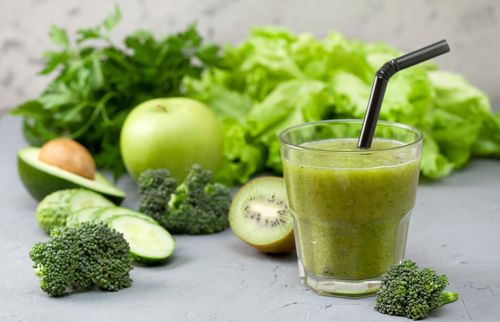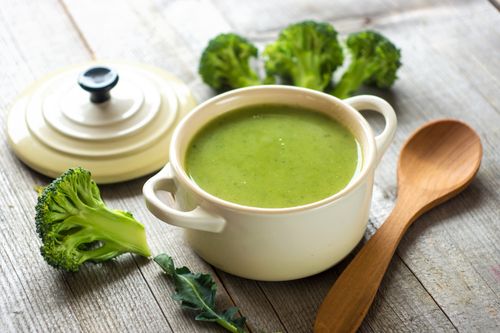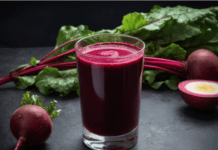Almost everyone is familiar with broccoli. It’s usually found alongside a meat dish, in a salad, or combined with cheese in pasta.
Broccoli can be a great vehicle to take in essential vitamins and minerals that your body needs to function.
In fact, it’s one of the most complex and nutritionally dense vegetables around.
Broccoli is one of those vegetables that has been unpopular with kids and adults decades ago, however, people are now realizing the importance of green vegetables and are inculcating them into their diet.
Table of Contents
What Are The Nutritional Benefits Of Broccoli in Your Diet?
Broccoli contains extremely high amounts of antioxidants, bioactive compounds, fiber, minerals, and vitamins. The nutritional profile of one cup (approx 91g) of raw broccoli is:
- Calories: 31
- Protein – 2.6g
- Carbohydrates – 6g
- Fat – 0.3g
- Fibre – 2.4g
As you can see, broccoli contains very little fat and carbohydrates and is high in protein, making it a must in your daily diet.
Benefits of Broccoli in Your Diet
Broccoli contains a whole host of vitamins, minerals, bioactive compounds, and antioxidants that help keep our bodies as healthy as possible.
But, what are some other benefits of this stalky, green vegetable? Let’s find out below:
1. Reduces Inflammation
Broccoli’s high profile of antioxidants makes it a contender for fighting inflammation. Kaempferol, a natural flavonol present in broccoli is especially good at reducing inflammation.
2. Protects Against Cancer
Many studies have shown that cruciferous vegetables including broccoli are great at protecting our cells from unwanted invaders.
The vegetable contains sulforaphane, a compound that may have potent anti-cancer properties that help reduce cell damage that is caused by the disease.
3. Control Blood Sugar

For those with diabetes, broccoli can be especially effective at controlling blood sugar.
The soluble fiber in broccoli helps regulate blood sugar by slowing down digestion which then slows down the absorption of sugar and prevents blood sugar spikes.
4. Improve Bone Health

Broccoli has a high amount of vitamin K which helps improve calcium absorption.
People suffering from low vitamin K may experience more bone fractures as well as weak and brittle bones.
Thus, it is highly recommended to add broccoli into your foods for healthy and strong bones.
5. Look Younger
Broccoli can do wonders for your skin, hair, and nails. It is abundant in vitamin C and thus helps reduce skin damage, reduce wrinkles, and improve the look and feel of your skin.
Also, the natural form of vitamin C in broccoli forms the collagen which helps support the structure of the skin.
6. Digestion

Eating foods high in fiber is key in regulating your digestive system.
Maintaining a healthy digestive system is vital in order to release out daily toxins and to protect yourself from colon cancer.
Eating broccoli, cooked, or raw can reduce constipation and keep your digestive tract moving.
7. Supports Healthy Brain Function
The nutrients found in broccoli can help maintain a healthy brain and tissue function. Sulforaphane, found in broccoli can support the brain and encourage oxygenation.
In addition, vitamin K in broccoli is known to strengthen cognitive abilities and support nervous system functioning.
Broccoli also contains folic acid which can ward off Alzheimer’s disease and choline which supports memory function.
8. Supports Heart Health
LDL or “bad” cholesterol can increase your risk of heart disease. Broccoli has been proven to lower this risk by reducing LDL cholesterol and increasing HDL/ “good” cholesterol.
Broccoli and Weight Loss
Broccoli can be an essential part of your diet if you are looking to lose weight. Broccoli contains only 31 calories per cup (91g) and only 0.3 g of fat.
This makes it a great choice when dieting or looking to lose weight.
The fiber present in the vegetable helps you lose weight by suppressing your appetite.
The soluble fiber in broccoli absorbs water and creates a gel in your digestive tract thereby making you feel “full” for long.
Moreover, ghrelin is a special hormone that signals your body when it’s hungry. The fiber in broccoli also helps to reduce the secretion of ghrelin, further suppressing your appetite.
Also, the high amounts of vitamins found in broccoli can actually help you lose weight.
Carnitine is a compound that is essential when metabolizing fats when exercising and is synthesized by vitamin C.
The vitamin C in broccoli encourages weight loss through exercise by readily synthesizing high amounts of carnitine.
Calcium promotes weight loss through thermogenesis, small increases of the body’s core temperature which boosts metabolism and burns fat.
The calcium in broccoli is known to aid in weight loss by breaking down fat already stored in the body and by preventing the formation of new fat cells.
Best ways to incorporate Broccoli in your Daily Diet
Incorporating vegetables into your diet can be difficult, but luckily, the versatility of broccoli lends a wide array of preferences and palates.
Here are some ways to incorporate broccoli into your weight loss regime:
Broccoli Juice

Many people have turned to broccoli juice to get their daily dose of nutrients.
The key to juicing broccoli is to combine it with other flavors such as apple, orange, cucumber, or even grape.
Drinking raw broccoli juice will ensure that all nutrients are intact, undamaged, and bio-available.
Broccoli Salad
Broccoli salad is a great way to get in the powerful benefits. It can also be a popular addition to any party or picnic.
Add some almonds, dried fruit, and shredded carrots and choose a low-fat dressing. Let it sit in the fridge until the broccoli has softened up, and serve!
Broccoli Soup

Broccoli is great as blended soup and can be enjoyed by the whole family.
If you are lactose intolerant, substitute the milk for coconut milk and cheese for a vegan alternative. Blend in a heavy-duty blender and serve hot.
Roasted Broccoli
Roasted vegetables can be a nice break from eating them raw. Try roasting broccoli with olive oil, salt, and spices of your choice.
It’s amazing how a nutrient-dense vegetable can transform into a delicious snack.
Summary
Broccoli is a powerhouse vegetable that’s high in fiber, low in fat, and is chock full of vitamins, minerals, and antioxidants.
Broccoli contains high amounts of vitamin C and vitamin K as well as antioxidants which lend powerful benefits for the body and the mind.
Adding broccoli to your diet is a great way to lose weight by increasing your fiber while minimizing extra calories and fat.
The benefits of broccoli are endless and it’s no wonder this cruciferous vegetable is one of the most popular vegetables in the world.







